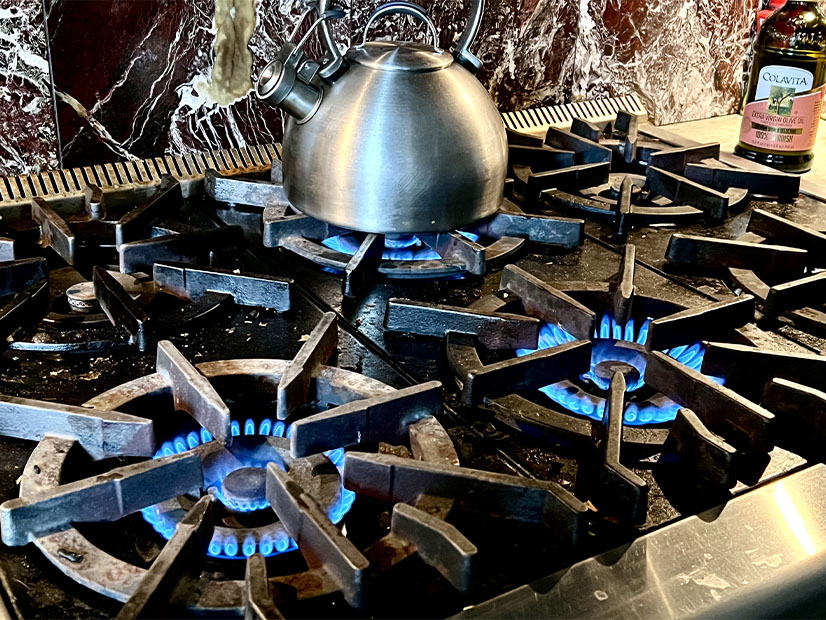
The U.S. Department of Energy has finalized new efficiency standards for residential cooking appliances, ushering in modest increases that will take effect in January 2028.
In its announcement Jan. 29, DOE said the changes will save consumers $1.6 billion on their utility bills over 30 years.
But DOE also said the improvements it’s ordering are modest and will pertain to only a small percentage of cooktops and stoves manufactured. It said 97% of gas models and 77% of smooth-top electric stove models now on the market already meet the new standards.
The cooking equipment standards are part of a larger push by the Biden administration for energy efficiency standards it estimates will yield nearly $1 trillion in consumer savings over 30 years.
Partisan and corporate priorities would make any such package of changes contentious, but the proposed new rules on cooking equipment published by DOE in February 2023 became a cause celebre, with conservative firebrands pouncing on a supposed gas stove ban.
The blowback was such that DOE in May 2023 published a knockdown piece that read in part: “Claims that the federal government is banning gas stoves are absurd.”
The lingering effects of that kerfuffle can be seen in the wording of the announcement, in which DOE emphasizes that the new standards were mandated by Congress and drawn up in negotiations with stakeholders including utilities, states and advocates for consumers, appliance makers and the environment.
DOE also points out the new rules will not bar features desired by consumers such as continuous cast iron grates, high-input-rate burners and other specialty burners.
The efficiency standards for gas cooktops were watered down significantly during negotiations. DOE first proposed a limit of 1.2 million BTUs per year, but the final rule sets a limit of 1.77 million BTUs.
Spread over 30 years across the 143 million existing U.S. housing units, the $1.6 billion in projected savings works out to about 37 cents a year.
The Association of Home Appliance Manufacturers was one of the stakeholders that helped negotiate the new rule. It said Jan. 29: “This standard is a win for consumers and energy savings. Manufacturers will have the flexibility they need to continue offering the features and performance that consumers value in gas and electric cooking products.”
Another of the stakeholders, the Appliance Standards Awareness Project, said the value of the negotiated recommendations is not so much for cooking appliances but in the entire package of appliance standards that was negotiated, including washers, dryers, dishwashers, refrigerators, freezers and beverage coolers. Executive Director Andrew deLaski said the effect of the announcement will be seen primarily in electric cooking equipment.
“The main thing this does is ensure new smooth-top electric stoves don’t waste energy when they’re not even operating,” he said in a news release. “It’s a modest money saver for consumers, with changes that would be challenging to even notice. There was disagreement over this stoves rule last year, but then the stakeholders came together and resolved it.”
He added: “It’s the whole suite of dozens of updated product standards the department is working on that will deliver the big impact, reducing people’s costs and protecting the climate.”
DOE in late December adopted new residential refrigeration standards that will take effect in 2029 and 2030, with $36.4 billion in consumer savings over 30 years. Proposed commercial refrigeration standards would save businesses $56 billion over 30 years.
U.S. Secretary of Energy Jennifer Granholm said her agency is continuing the initiative: “DOE is dedicated to working together with our industry partners and stakeholders throughout 2024 to continue strengthening appliance standards, addressing a backlog of congressionally mandated energy efficiency actions that is delaying a projected $1 trillion in consumer savings from reaching the American people.”



